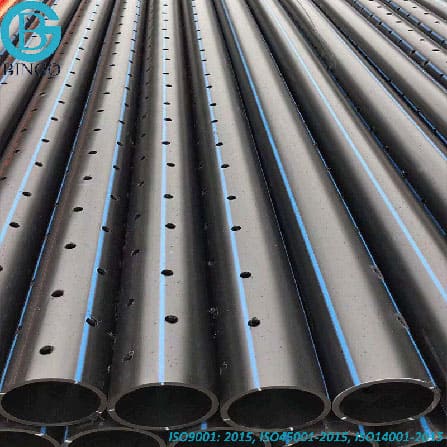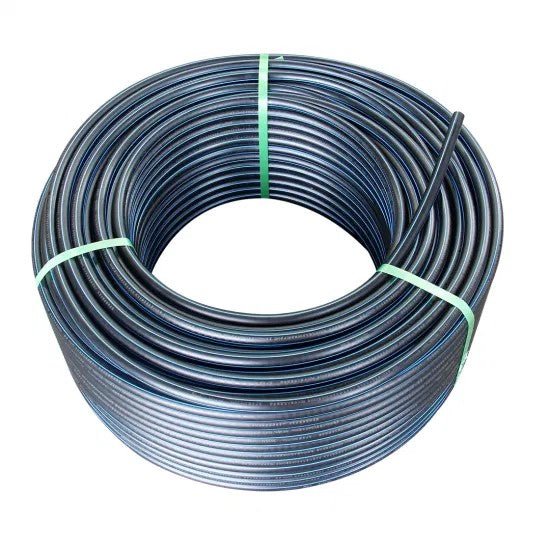Pipe Manufacturing Midland TX: From Raw Material to Finished Pipe
A Comprehensive Guide to the Numerous Uses HDPE Pipeline in Construction and Sector
HDPE pipelines have become an essential element in contemporary building and industrial applications. Their distinct homes, such as resistance to deterioration and light-weight style, make them appropriate for a variety of uses. From water supply systems to farming watering, HDPE pipes use remedies that boost performance and sustainability. Understanding their diverse applications is essential for specialists looking to enhance facilities. What specific benefits do these pipes give each market?
Water Supply and Circulation Equipments
Supply of water and circulation systems are important components of urban facilities, often relying upon high-density polyethylene (HDPE) pipes for their durability and effectiveness. These systems transport drinkable water from therapy facilities to consumers, ensuring accessibility and safety. HDPE pipes are favored for their resistance to rust, chemicals, and extreme temperatures, which improves their long life and lowers upkeep prices. In addition, their light-weight nature permits much easier setup and transport, making them optimal for numerous urban and country applications.
The flexibility of HDPE pipelines enables them to be set up in limited rooms and around challenges, lessening the requirement for comprehensive excavation (Pipe Supplier American Plastics Midland). Their smooth interior surface minimizes friction losses, enhancing water flow rates. As cities proceed to grow, the need for reputable supply of water systems boosts, placing HDPE pipelines as a lasting solution for modern-day facilities jobs. Their tried and tested performance history makes them a recommended option among designers and metropolitan coordinators alike
Wastewater Management and Treatment
Reliable wastewater monitoring and treatment are essential for keeping public health and wellness and environmental quality. HDPE pipes play a crucial function in this process due to their toughness, resistance to corrosion, and ability to withstand severe chemicals. These pipes are frequently utilized in various applications, consisting of sewer systems, stormwater water drainage, and wastewater treatment centers. Their lightweight nature helps with easier setup and transportation, minimizing labor costs and time.
On top of that, HDPE pipelines have a smooth indoor surface area that minimizes friction loss, promoting effective circulation rates. They are additionally much less vulnerable to leaks and failings compared to traditional materials, ensuring that contaminants are consisted of efficiently. Furthermore, their adaptability permits flexibility in numerous soil conditions, making them appropriate for varied environmental settings. As markets progressively focus on sustainable techniques, the usage of HDPE pipelines in wastewater administration systems lines up with objectives for reducing environmental effect and boosting resource recuperation.
Agricultural Irrigation Solutions
In farming settings, effective irrigation services are vital for maximizing plant returns and managing water resources. HDPE (High-Density Polyethylene) pipes play a crucial duty in modern irrigation systems because of their resilience, versatility, and resistance to deterioration. Their ability to stand up to high stress makes them perfect for both surface and subsurface watering applications, ensuring uniform water distribution across areas.
Farmers can make use of HDPE pipelines in drip watering systems, which supply water straight to plant roots, decreasing wastage and promoting healthy and balanced growth. Additionally, these pipelines are light-weight and easy to set up, reducing labor expenses and installment time. Their long life-span and low upkeep needs even more boost their allure in farming practices.
HDPE pipes are environmentally friendly, as they can be recycled and do not seep hazardous chemicals right into the dirt. This makes them a sustainable selection for farmers aiming to adopt environmentally friendly farming approaches while maximizing performance.
Industrial Applications and Procedures
Versatility is a trademark of HDPE pipelines, this post making them crucial in various industrial applications and processes. These pipelines are widely used in chemical handling sectors as a result of their exceptional resistance to a variety of harsh substances. HDPE's light-weight nature, integrated with high tensile strength, allows for easy setup and lasting efficiency sought after environments.
In the oil and gas industry, HDPE pipes play an essential role in transferring hydrocarbons and gases, thanks to their sturdiness and versatility - Pipe Manufacturing Midland TX. In addition, they are used in mining operations for the transportation of slurry and various other materials, where typical piping systems may stop working
HDPE pipes are progressively used in producing centers for water supply lines and wastewater management. Their capability to stand up to severe temperatures and pressures makes them appropriate for a selection of commercial processes. Generally, HDPE pipelines add substantially to effectiveness and safety across diverse industrial applications.
Stormwater Management and Drainage Solutions
Stormwater administration and drain systems are essential parts in city facilities, developed to manage excess rainfall and reduce flooding risks. High-density polyethylene (HDPE) pipelines are increasingly made use of in these systems as a result of their longevity, adaptability, and resistance to deterioration. These pipelines effectively deliver stormwater away from booming locations, decreasing surface area drainage and preventing waterlogging.
HDPE's lightweight nature helps with much easier installment, lowering labor costs and building time. In addition, its resistance to visit the site chemicals and environmental stress factors warranties longevity and reliability in different environments. Along with traditional drain applications, HDPE pipes are also employed in ingenious options such as green infrastructure, that includes rainfall gardens and absorptive sidewalks.

Frequently Asked Concerns
Just How Does HDPE Pipeline Compare to PVC Pipeline in Price?
Generally, HDPE pipe has a tendency to be extra pricey than PVC pipe as a result of its boosted longevity and adaptability. Nonetheless, long-term cost considerations, such as maintenance and lifespan, may favor HDPE in particular applications.

What Is the Life Expectancy of HDPE Pipes Under Varying Problems?
HDPE pipelines commonly have a lifespan of 50 to 100 years, depending upon environmental conditions, installation practices, look at more info and use. Aspects such as temperature level, dirt kind, and exposure to chemicals can significantly influence their toughness.
Can HDPE Water Lines Be Recycled After Use?
Yes, HDPE pipelines can be reused after usage. The reusing procedure involves thawing down the product, enabling it to be repurposed right into new items, thus advertising sustainability and minimizing environmental effect connected with plastic waste.
Exist Any Kind Of Certain Installment Obstacles With HDPE Pipelines?
Installment obstacles with HDPE pipelines consist of proper jointing techniques, making certain sufficient trench problems, and taking care of thermal expansion. Furthermore, competent labor is needed to deal with specialized equipment, which can complicate the setup procedure in numerous settings.

What Qualifications Should I Seek When Purchasing HDPE Pipes?
When purchasing HDPE pipelines, one should seek qualifications such as ASTM, AASHTO, and ISO, which validate top quality and conformity with sector criteria, assuring durability and performance in various applications. - American Plastics HDPE Pipe Manufacturing